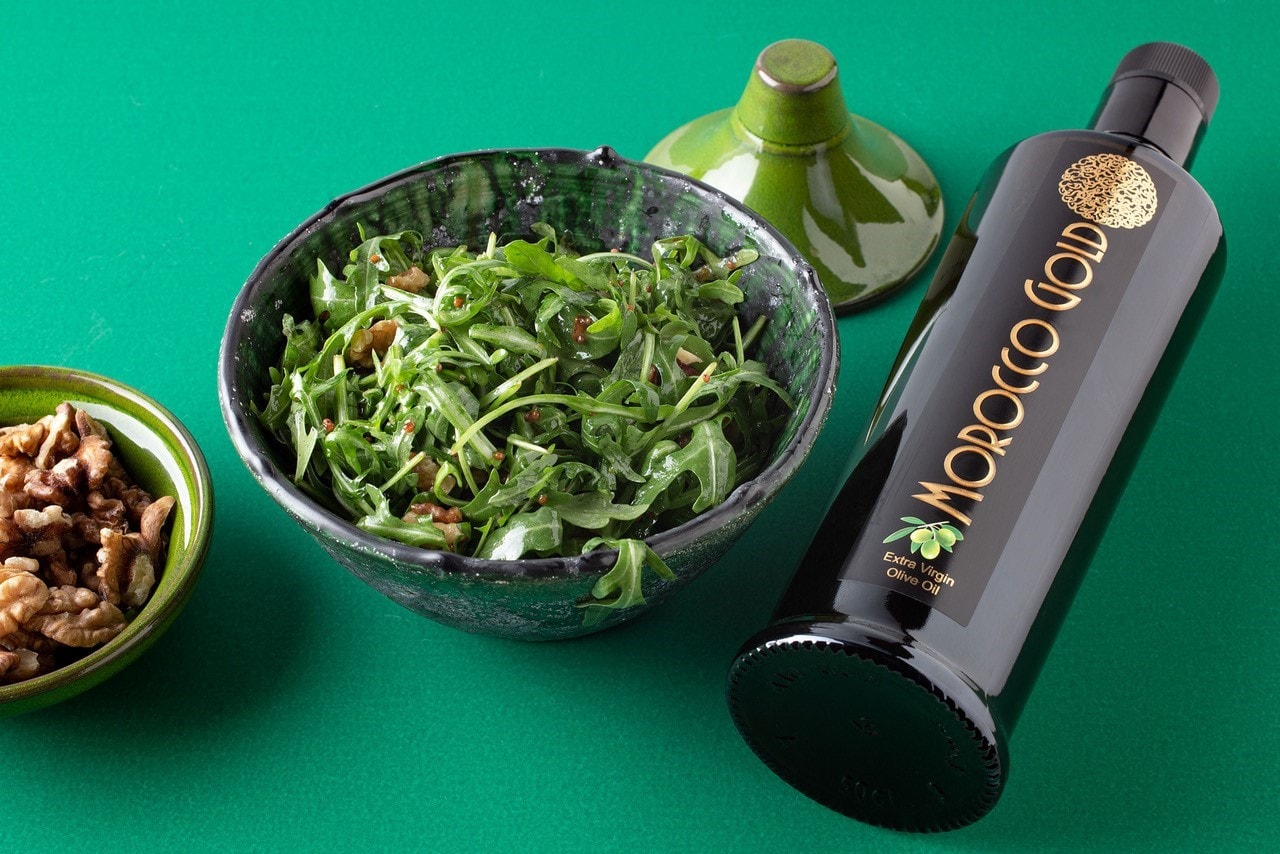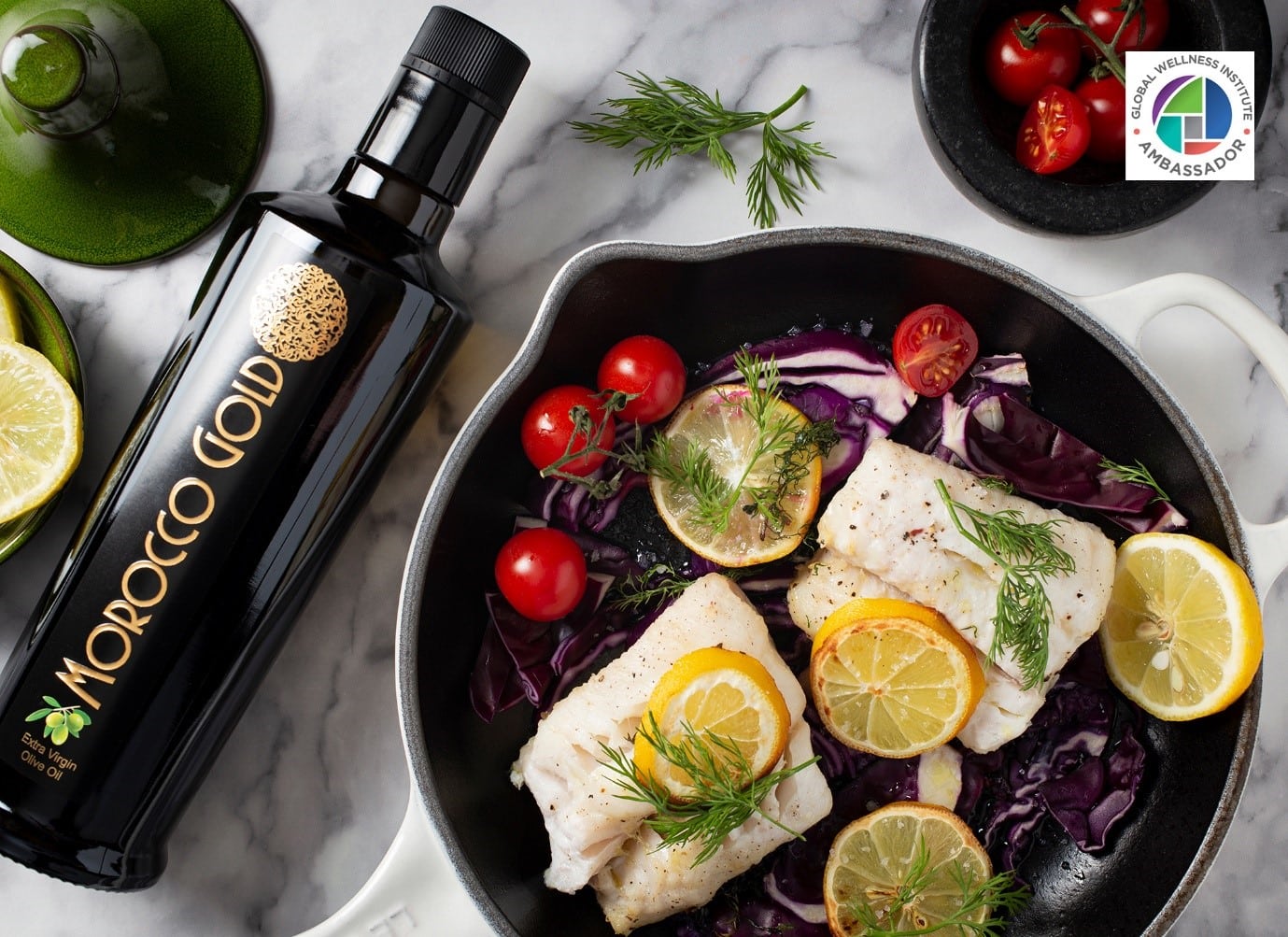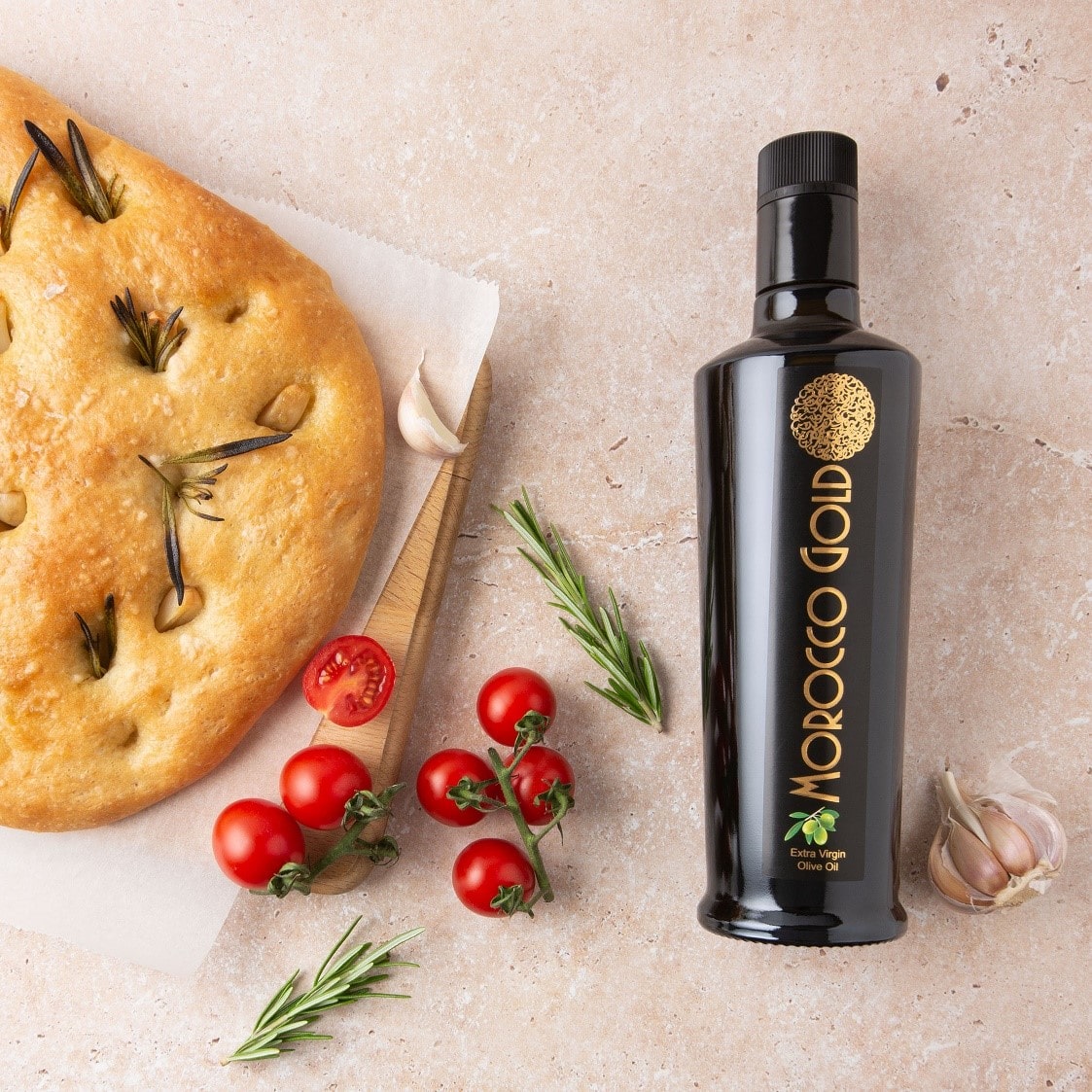Mediterranean Diet Can Help Reduce ‘Inflammageing’

Summary
Contents
- Why Anti-Inflammatory Foods Like Olive Oil Can Protect Against Ageing
- The Science behind The Mediterranean Diet And Reducing Inflammation
- The Symptoms Of Inflammation
- The Anti-Inflammatory Properties Of Extra Virgin Olive Oil
Why Anti-Inflammatory Foods Like Olive Oil Can Protect Against Ageing
If you are keen to reducing the inflammation in our bodies due to ageing, opting for a Mediterranean Diet with lots of anti-inflammatory foods like olive oil is a great choice.
According to a new study in Nature , a healthy diet might save your organs from the damaging effects of ‘Inflammageing’.
‘Inflammageing’ is the name that scientists have given to the systematic low-grade inflammation that develops in our bodies as we age.
Known as chronic inflammation, it can damage our organs over time and become a serious risk factor for heart disease, type 2 diabetes, dementia and other chronic diseases.
Including anti-inflammatory foods in your diet is a powerful way to protect against age-related inflammation. Extra virgin olive oil, one of the most renowned anti-inflammatory foods, is rich in antioxidants and healthy fats, which help combat inflammation at the cellular level.
For health enthusiasts, nutritionists, and seniors, this means incorporating extra virgin olive oil into daily meals can not only enhance flavour but also support long-term health. By reducing inflammation, these foods play a crucial role in maintaining joint health, lowering the risk of chronic diseases, and promoting overall well-being as we age.
The Science behind The Mediterranean Diet And Reducing Inflammation
According to thenewsdaily.com.au, as we age, our cells become more dysfunctional, including our immune cells.
It’s the not-quite-right immune cells that prompt this chronic inflammation and also suffer from inflammation.
As the new study in Nature explained:
“At the same time, chronic inflammation accelerates the senescence (dysfunction) of immune cells, resulting in weakened immune function and an inability to clear senescent (dysfunctional) cells and inflammatory factors, which creates a vicious cycle of inflammation and senescence.
“Persistently elevated inflammation levels in organs such as the bone marrow, liver, and lungs cannot be eliminated in time, leading to organ damage and ageing-related diseases.”
“Elimination of inflammation could be a potential strategy for anti-ageing,” conclude the study authors from Zhejiang University, Haining, China.
The Mediterranean diet and DASH diets are examples of anti-inflammatory eating.
Diets heavy in saturated fats, poor-quality sugars and carbs, and trans-fats – and ultra-processed foods more broadly – are known to cause inflammation.
Symptoms of chronic inflammation
Chronic inflammation is often called the “silent killer” due to its subtle yet persistent nature. Unlike acute inflammation, which is a short-term response to injury or infection, chronic inflammation lingers over time and can contribute to various age-related diseases. For health enthusiasts and adults looking to maintain their wellness as they age, understanding the symptoms of chronic inflammation is crucial.
1. Persistent Fatigue
One of the most common signs of chronic inflammation is ongoing fatigue. This isn’t the occasional tiredness that goes away after a good night’s sleep; it’s a constant feeling of exhaustion that doesn’t improve with rest.
2. Muscle and Joint Pain
Chronic inflammation can cause widespread pain in muscles and joints, making physical activities more challenging. This pain is often mistaken for arthritis or general aging, but it’s essential to identify inflammation as a potential cause.
3. Digestive Issues
Digestive problems such as bloating, cramping, and constipation can be symptoms of chronic inflammation. Conditions like irritable bowel syndrome (IBS) are often linked to long-term inflammatory processes in the gut.
4. Weight Gain or Loss
Unexplained changes in weight are another red flag. Chronic inflammation can affect your metabolism, leading to either weight gain or loss without significant changes in diet or exercise habits.
5. Frequent Infections
If you find yourself constantly battling colds or other infections, your immune system might be compromised due to chronic inflammation.
6. Skin Problems
Skin manifestations like rashes, eczema, or acne may also indicate underlying inflammation. These conditions occur because the body’s immune response can affect skin health.
7. Cognitive Decline
Chronic inflammation has been linked to mental health issues and cognitive decline, including brain fog, memory loss, and decreased concentration.
8. Cardiovascular Issues
High blood pressure and other heart-related issues can be signs of chronic inflammation. Over time, inflammation can damage the lining of your arteries, increasing the risk of heart disease.
9. Mood Disorders
There is a strong connection between inflammation and mood disorders such as depression and anxiety. Inflammatory cytokines can affect neurotransmitter function, leading to changes in mood.
The Anti-Inflammatory Properties Of Extra Virgin Olive Oil
The polyphenols Oleouropein Aglycone and Oleocanthal within extra virgin olive oil help to combat inflammatory diseases Morocco Gold extra virgin olive oil is rich in both of these polyphenols.
In addition, scientists have shown that individuals who regularly consume Olive Oil have reduced activity of their pro-inflammatory cyclo-oxygenase 1 (COX-1) and cyclo-oxygenase 2 (COX-2) enzymes, as well as reduced levels of related molecules including thromboxane B2 and leukotriene B4. Two molecules that are known to increase during inflammatory disease processes, vascular cell adhesion molecule-1 (VCAM-1) and intercellular adhesion molecule 1 (ICAM-1), have also been shown to decrease in amount following intake of Extra Virgin Olive Oil.
In this anti-inflammatory context, it is also worth noting that oxidative stress, a process that often parallels the process of chronic inflammation, is reduced by regular consumption of Extra Virgin Olive Oil. One common blood marker used to monitor oxidative stress is the formation of substances called F2-isoprostanes, and studies have shown 10-15% lower levels of this blood marker following Extra Virgin Olive Oil intake.
Importantly, the anti-inflammatory benefits of Extra Virgin Olive Oil do not depend on large levels of intake. In most studies, these benefits become statistically significant with as little as one tablespoon of Extra Virgin Olive Oil per day.






